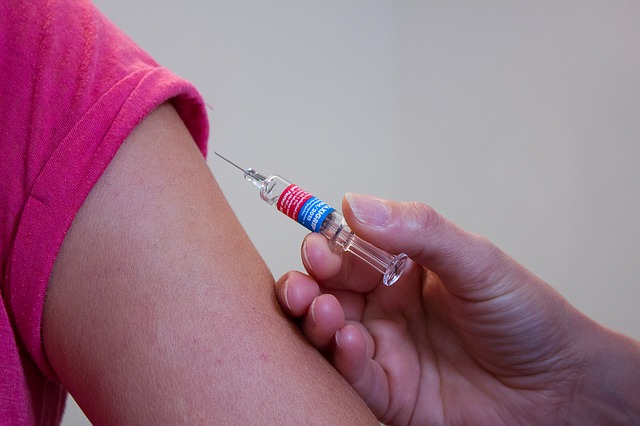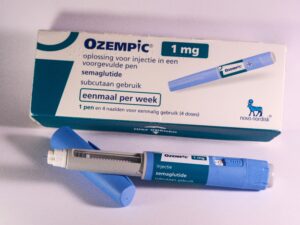Doctors and scientists are investigating the reason behind several severe allergic reactions to COVID-19 vaccines. Thus far just over 1 million doses of the Pfizer and Moderna vaccines have been administered. Anaphylaxis was not reported during clinical trials for either the Pfizer-BioNTech or Moderna versions.
According to The Centers for Disease Control and Prevention (CDC), as of December 19, six people who received the Pfizer vaccine in the United States developed anaphylaxis, which is an acute allergic reaction that can be life-threatening without medical intervention. On Friday, December 24, a doctor in Boston with a shellfish allergy, who received the Moderna vaccine, suffered an anaphylactic reaction immediately after being vaccinated. There have been two anaphylactic reactions in the U.K. Although anaphylactic reactions are a possibility with any vaccine, they are exceedingly rare, with a frequency of 1 event per 1 million doses.
Daniel Griffin, Chief of Infectious Disease at ProHEALTH Care and National Process Expert for Optum Vaccine Administration, said, “Most vaccines cause allergic reactions in a few people, so there is nothing new with the COVID vaccines. These reactions appear rare, and may be even less common with the COVID vaccines than other vaccines.”
Elizabeth Phillips, a drug hypersensitivity researcher at Vanderbilt University Medical Center, who attended a National Institute of Allergy and Infectious Diseases (NIAID) meeting on December 16, said since the Pfizer and Moderna mRNA vaccines utilize a revolutionary technology, the reactions call for “careful scrutiny. This is new.”
The CDC is now recommending that facilities providing vaccinations should have emergency medications and appropriate medical equipment available on site.
The agency said the window of observation after receiving the vaccine is 30 minutes for those with a history of anaphylaxis and 15 minutes for people with no such history.
Anaphylaxis can cause rapidly dropping blood pressure, shortness of breath, rashes, and a fast heartbeat.
There is speculation that polyethylene glycol (PEG), may be the cause of the severe allergic reactions. Both vaccines contain mRNA encapsulated in lipid nanoparticles (LNPs) that help carry the fragile mRNA into human cells by increasing its stability and lifespan but also act as an adjuvant, which is a vaccine ingredient that enhances the immune response. The LNPs are chemically attached to PEG molecules that cover the outside of the mRNA.
PEG is found in numerous drugs that on rare occasions have caused anaphylaxis. However, it has never been used before in an approved vaccine.
While some allergists and immunologists posit that a small percentage of the population may have high levels of antibodies against PEG, thus placing them at risk of an anaphylactic reaction, other scientists and researchers are skeptical about the link.
Nonetheless, the NIAID convened several meetings with representatives of the FDA, Pfizer and Moderna, scientists, and physicians, to discuss the allergic reactions.
The NIAID is preparing a study in cooperation with the FDA to analyze the response to the vaccine in people who have high levels of antibodies against PEG or have experienced anaphylactic responses to drugs or vaccines.
Phillips emphasized that vaccination should continue. “We need to get vaccinated. We need to try and curtail this pandemic.” She added that more data is needed. “These next couple of weeks in the U.S. are going to be extremely important for defining what to do next.”
According to the CDC, people with a history of severe allergic reactions not related to vaccines, such as allergies to pets or food, may still receive the vaccine. The same guidance applies to people with a family history of severe allergic reactions, and those who might have a milder allergic reaction to vaccines. Those individuals should be monitored for 30 minutes after being vaccinated. If you have a history of severe allergic reactions to other vaccines, you should consult your physician before taking the COVID-19 vaccine.










